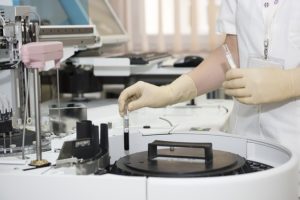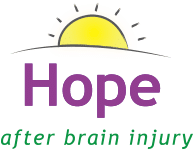Each year emergency rooms use CT scans to perform images on millions of people with suspected brain injuries. The injury can range from a mild concussion to moderate or severe. CT scans provide a critical source of information when physicians suspect bleeding, swelling on the brain, or a fracture of the skull has occurred.
Many patients may leave the emergency room with no conclusive diagnosis, and their CT scan showing no evidence of injury. As weeks and months pass, patients may struggle with the onset of post-concussion syndrome. The symptoms can last from a few days, months, or longer possibly becoming worse over time. The ongoing symptoms may be an indicator there could be more to the injury than initially assessed.
To date, CT scans have been the gold-standard diagnostic medical device used to detect all forms of brain injuries in emergency rooms. The downside is that the level of radiation patients absorb during a CT scan is high, not to mention the overall burden of healthcare costs.
 The future of medical diagnostics for traumatic brain injuries changed in early 2018 when the FDA approved the marketing for the first blood test able to detect traumatic brain injuries. The Banyan Biomarker blood test can provide medical professionals with a quick and accurate pre-assessment tool to use in the early stages of care for patients in emergency rooms who have suffered a concussion. The new blood test brings good news for patients and the medical community, reducing the need for CT scans in some cases where the blood test shows no traumatic brain injury has occurred.
The future of medical diagnostics for traumatic brain injuries changed in early 2018 when the FDA approved the marketing for the first blood test able to detect traumatic brain injuries. The Banyan Biomarker blood test can provide medical professionals with a quick and accurate pre-assessment tool to use in the early stages of care for patients in emergency rooms who have suffered a concussion. The new blood test brings good news for patients and the medical community, reducing the need for CT scans in some cases where the blood test shows no traumatic brain injury has occurred.
A report from Business Wire on April 4, 2019, announced the license partnership between Banyan and Abbott laboratories “When a physician sees someone in the emergency room with a suspected brain injury, it is critical that we have objective measurements and tests available,” said Beth McQuiston, M.D., R.D., board-certified neurologist and medical director, Diagnostics, Abbott. “Using novel biomarkers like these will help us develop both point-of-care and core laboratory blood tests for clinicians to assess brain injuries.”
At Hope After Brain Injury, we are eager to bring you the latest in brain injury and recovery-based information with the new “Brain Injury in the News” addition to our blog. Here you will find the most recent in brain injury treatment developments, rehabilitation options, featured brain injury survivors making a difference, and much more.

Leave A Comment
You must be logged in to post a comment.